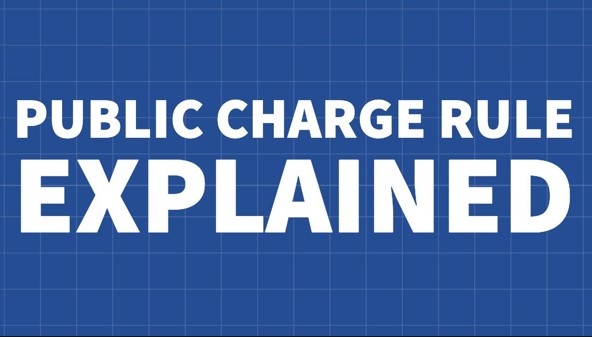On August 14, 2019, the Department of Homeland Security (DHS) published a final rule related to public charge in the Federal Register. The rule was set to take effect on October 15, 2019, but is currently tied up in litigation. The rule will not apply to immigration applications filed before it takes effect.
Here are some highlights of the rule if and when it does take effect.
Who does the rule apply to?
The primary target of the rule is most applicants filing a Form I-485, Application to Adjust Status, with U.S. Citizenship and Immigration Services (USCIS).
Who does the not apply to?
This rule does not apply to:
- Applications for immigrant visas at a U.S. Embassy or Consulate abroad. Still, note that the State Department plans to implement a similar rule applicable to such individuals.
- Forms I-485 being filed by refugees, asylees, survivors of trafficking, domestic violence, or other serious crimes (T or U visa applicants/holders); VAWA self-petitioners, special immigrant juveniles
- Form N-400, Application for Naturalization
- Form I-751, Petition to Remove the Conditions on Residence
The new meaning of “public charge”
The statute still reads that a person who is likely at any time to become a public charge in “inadmissible,” i.e., ineligible for approval of a Form I-485 or admission to the country. But the regulatory definition of “public charge” has changed. Now, instead of assessing whether an applicant is likely to become primarily dependent on the government for income support, the new rule defines a public charge as a person who receives any number of public benefits for more than an aggregate of 12 months over any 36-month period of time. Each benefit used counts toward the 12-month calculation. For instance, if an applicant receives two different benefits in one month, that counts as two-months’ use of benefits.
Receipt of which public benefits can lead to a public charge finding?
- Medicaid
- Supplemental Nutrition Assistance Program (SNAP, formerly known as Food Stamps)
- Section 8 housing assistance and federally subsidized housing
- Any cash aid, including not just Temporary Assistance to Needy Familied (TANF) and Supplemental Security Income (SSI) but also any state or local cash assistance program
Note that receipt of benefits by family members of the immigrant does not count, nor does receipt of Medicaid by applicants while under age 21 or while pregnant.
Emergency medical care and disaster relief do not count, nor do school lunch programs or Head Start.
Importantly, receipt of public benefits does not automatically make a person a pubic charge. Officials must look at all your circumstances to determine whether you are likely to become a public charge in the future.
What other factors are considered in determining whether a person is likely to become a public charge?
- Financial status (income, assets)
- Size of family you must support and who will support you
- Education
- Skills and employment
- English proficiency
- Medical conditions
- Availability of private health insurance
- Past use of immigration fee waivers
The public charge test involves consideration of the “totality of circumstances,” but some factors are weighed more heavily than others.
Heavily weighing in favor of an individual will be:
- Possession of financial assets, resources, support or annual income of at least 250 percent of the federal poverty guidelines. For 2019, 250 percent of the federal poverty guidelines is $31,225 for an individual and $64,375 for a family of four;
- Work authorization and current employment with an annual income of at least 250 percent of the federal poverty guidelines;
- Having private health insurance appropriate for the expected period of admission, but not including health insurance purchased with subsidies through the Affordable Care Act.
Heavily weighing against an individual will be:
- Absence of current employment, employment history, and the reasonable prospect of employment;
- Current receipt of or certification or approval for use of one or more specified public benefits for more than 12 months in the aggregate in the 36-month period beginning 36 months prior to the application for admission or adjustment of status (received after the effective date of the rule);
- A medical condition that will likely require extensive treatment or institutionalization, or that will interfere with the individual’s ability to be self-sufficient and work, and a lack of private health insurance coverage or some other non-subsidized means of paying for treatment; and
- A previous finding of inadmissibility on public charge grounds.

Leave a Reply